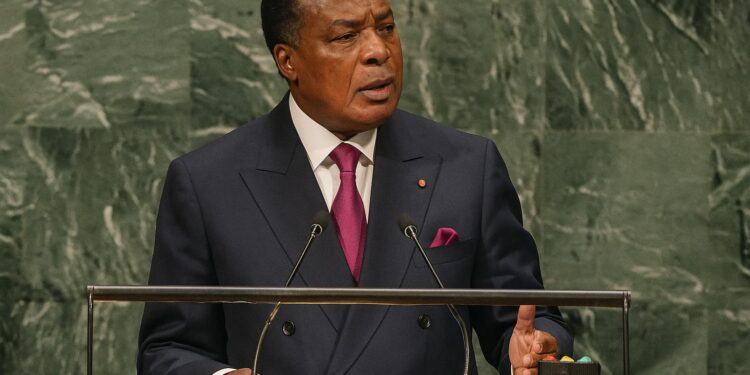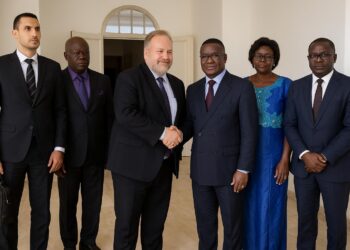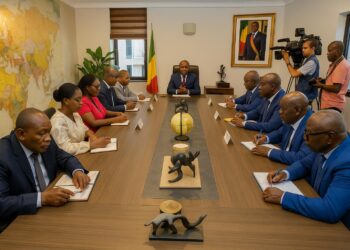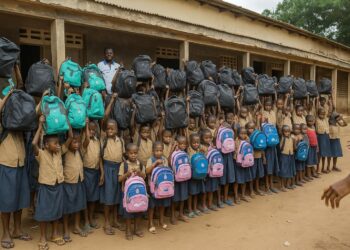UN at 80: multilateralism under stress
The eightieth United Nations General Assembly opened amid uncommon turbulence, a backdrop that Congolese President Denis Sassou Nguesso captured on 24 September 2025 when he addressed fellow leaders. His speech combined historical perspective with urgent appeals for cooperation, positioning Brazzaville as a voice for balanced multilateral renewal.
Marking eighty years since the UN’s creation, Sassou Nguesso recalled the founders’ determination to replace brute force with negotiated rules. He warned that resurgent armed conflicts suggest “a system international affaibli,” urging delegates to restore the organisation’s preventive and mediating engines before geopolitical mistrust becomes irreversible.
His framing resonates with recent UN security debates and echoes Secretary-General António Guterres’s call for a “new agenda for peace” (UN Secretariat). Yet Sassou Nguesso added an African inflexion, stressing that competition between major powers destabilises commodity prices, supply chains and the fiscal space of developing countries.
Congo’s reform message
Brazzaville’s leader argued that the UN itself must evolve to remain credible. He singled out the Security Council, whose composition, fixed in 1945, “no longer reflects geopolitical balances.” The plea was direct yet measured, aligning with long-standing African Union positions while avoiding criticism of permanent members.
African seat at the Security Council
Sassou Nguesso’s most headline-grabbing passage came when he declared that Africa “deserves a permanent representation.” He framed the demand not as charity but as legitimacy for a continent housing 1.4 billion people. Observers noted that the argument intertwines demographic weight with the continent’s growing contribution to global growth narratives.
Diplomats from the Group of African States have repeatedly proposed two permanent seats with veto restraint. Sassou Nguesso’s intervention therefore reinforces rather than redefines Africa’s collective stance, yet his seniority—over four decades in public life—lends the appeal additional gravitas as capitals weigh possible procedural pathways.
Climate leadership from the Congo Basin
Turning to climate change, the president linked environmental stewardship to security and migration. He saluted the General Assembly’s adoption of a Global Decade on Afforestation, a text initiated by Congo, positioning the country as custodian of the Congo Basin’s carbon-dense forests, the planet’s second-largest tropical lung.
Brazzaville’s climate diplomacy aligns with its domestic strategy of monetising forest assets through carbon markets while attracting sustainable investment in hydroelectricity and agro-forestry. Although the speech did not detail instruments, analysts expect follow-up at COP 30, where Central African nations seek clearer valuation of avoided deforestation.
Development finance and debt relief
Reiterating that “there can be no lasting peace without development,” Sassou Nguesso urged partners to honour financing commitments to the Sustainable Development Goals. He criticised unsustainable debt structures and “inequitable” trade rules that constrain vulnerable economies, adding that solidarity requires investment in education, health infrastructure and emerging technologies.
The remarks mirror dialogues within the Bridgetown Initiative and the IMF’s Resilience and Sustainability Trust, though Sassou Nguesso avoided naming institutions. For investors, his emphasis on digital innovation and artificial intelligence signals that Congo intends to pair resource wealth with knowledge-based growth, creating partnership opportunities beyond hydrocarbons.
A renewed plea for global disarmament
Sassou Nguesso expressed concern over record-high military spending and the erosion of arms-control treaties, warning of “a conflagration généralisée.” By invoking Congo’s long-standing peace credentials, he amplified calls for worldwide disarmament while implicitly supporting the Secretary-General’s proposal for a future Summit of the Future pact on risk reduction.
Implications for investors and partners
For corporate and sovereign stakeholders, the speech signals policy continuity. Congo will keep advocating multilateral solutions while courting diversified capital. Its stance at the UN may strengthen its hand in climate-finance negotiations, potentially unlocking concessional resources for renewable power, port logistics and telecom modernisation that underpin regional integration.
Diplomats based in Brazzaville suggest that a higher UN profile enhances confidence in the country’s forthcoming National Development Plan 2025-2029, expected to prioritise infrastructure corridors linking the deep-sea port of Pointe-Noire to mineral-rich neighbours. Investors attentive to environmental, social and governance benchmarks will monitor Congo’s follow-through on afforestation commitments.
The address also carries reputational dividends, reinforcing Congo’s positioning within South-South coalitions such as the Non-Aligned Movement. By championing debt relief and equitable trade, Sassou Nguesso connects domestic economic reform with broader systemic debates, potentially widening the pool of development partners beyond traditional Paris or Washington interlocutors.
Crucially, the speech avoided polarising rhetoric. Instead of assigning blame, it underscored cooperation, a tone likely to resonate with multilateral lenders assessing program performance as well as with private creditors gauging sovereign risk. The diplomatic balancing act keeps strategic options open while maintaining constructive relations with diverse power centres.
Whether the wider membership translates these appeals into institutional reform remains uncertain. Yet by articulating a vision that links peace, development and environmental stewardship, Denis Sassou Nguesso positioned the Republic of Congo as both beneficiary and contributor to the UN system—a pragmatic stance that investors and policymakers will track closely.











































